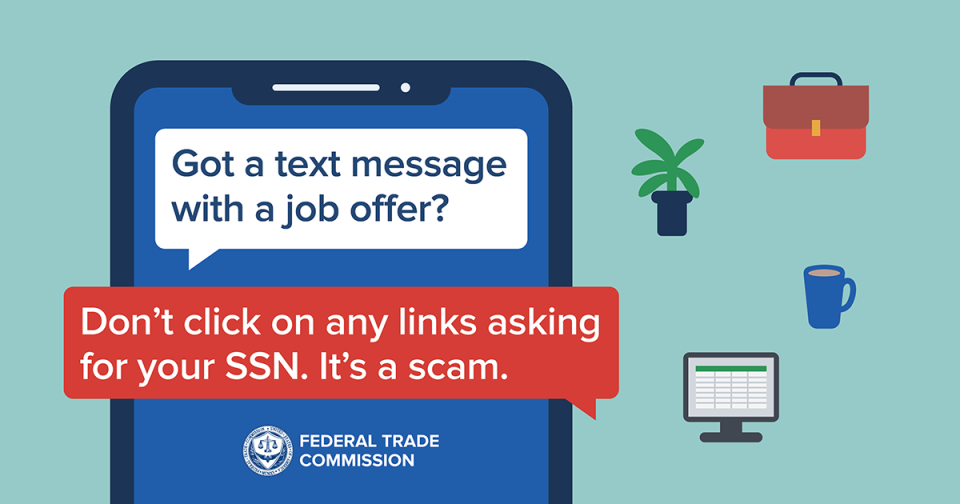You get a text message with a job offer that pays hundreds of dollars a day for doing remote work. It might sound tempting, but here’s the catch: they ask you to text them your Social Security number. Don’t share it. It’s a scam.
Scammers are sending texts on WhatsApp, pretending to offer remote jobs for positions like online data specialists. They promise they’ll pay up to $600 a day, but the company hiring is a total mystery. The text only says the job’s age requirement and asks for a valid Social Security number. Before you act, know this: not only is the job not legit, but if you send your information, the scammer can use it to steal your identity and create serious problems for you.
Here’s advice to help you deal with unexpected texts that could lead to job scams:
- Don’t click on links or respond to unexpected texts. If you think the text could be legit, contact the company using a website or phone number you know is real — not the information in the text.
- Do some research. Scammers usually promise big rewards for little work, but don’t give a lot of information. Search online for the name of the company and words like “review,” “scam,” or “complaint.” If you can’t find the company online, steer clear.
- Block unwanted texts. Scammers send texts designed to get your attention. Some phone settings and call-blocking apps let you block unwanted texts so you don’t hear from scammers in the first place.
If you spot a text scam, tell the FTC at ReportFraud.ftc.gov and forward it to 7726 (SPAM) or use your phone’s report “junk” option to delete and report it.
Did you give personal or financial information for a job that turned out to be a scam? Go to IdentityTheft.gov to report it and get a recovery plan.






I get those in text message…
I get those in text message and Whatsapp so pls be careful and don't respond just block and delete